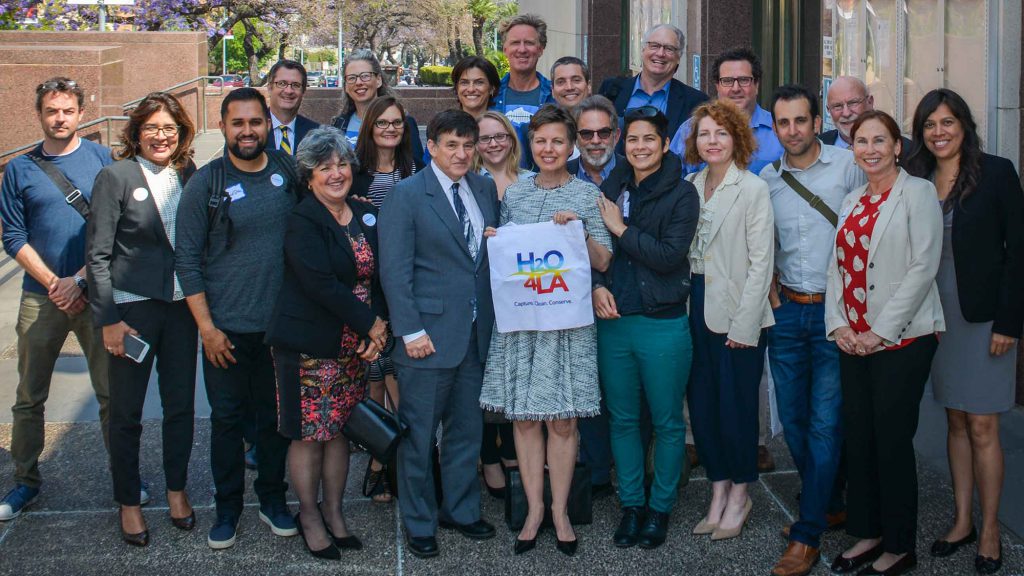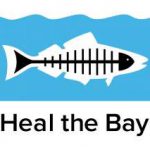Through countless hours of community advocacy, innovation, and analysis, LA County took an important step forward this week to secure clean water for all residents, develop more green space, and grow our region’s climate resilience.
On Tuesday, the Board of Supervisors unanimously approved over $95 million in new investments for the first round of Safe Clean Water Program projects, including many recommended by OurWaterLA and community leaders.
Since voters passed Measure W (or the Safe Clean Water Program) in 2018, nine steering committees throughout the county have analyzed and assessed proposed projects. As a result of OurWaterLA’s advocacy in 2017 and 2018, these steering committees have 30 community representatives, who have since helped guide and determine where and how Safe Clean Water Program funds are used.
Their recommendations helped secure approval this week for a number of nature-based, community-supported projects, including the MacArthur Lake Rehabilitation Project, Rory M Shaw Wetlands Park Project, and the Strathern North Stormwater Capture Project. In total, the Board of Supervisors approved the funding for watershed coordinators as well as 41 infrastructure projects, 15 technical assistance projects, four scientific studies, including a project that will help teach water quality issues and science to high school students and introduce them to a variety of water career paths.
We’re proud to continue to play a role in informing and guiding the Safe Clean Water Program. Still, we know that for the program to live up to its full promise, it must be accountable to and follow the lead of communities who are striving for clean water and healthy communities for all, including these ongoing priorities:
- Nature-Based Solutions: The program needs to prioritize investments in projects that provide multiple benefits for communities, including projects that include climate adaptation and mitigation in their design and implementation and that foster community stewardship of local projects.
- Community-Led Project Design: The program overall and all steering committees need to sustain community engagement throughout all projects’ development, implementation, operation, and maintaining.
- Metrics for Community Investments: The program needs more metrics and transparent processes to achieve its goals and community benefits.
- Jobs: The program needs to promote green jobs and career pathways with an emphasis on local hire and good paying jobs. The program should support local hiring for the equitable distribution of funds and to help foster a sense of community pride and stewardship for local projects. Workforce development pipelines and programs should be established to connect communities to job opportunities.
As we celebrate the first round of funding going out the door and applaud Supervisor Kuehl’s leadership on this program, we also call on the Board of Supervisors and LA County to learn from this initial year and work with residents and community-based organizations to do better moving forward.
That means prioritizing and ensuring community-led project designs. That means committing to contracts with local union workers. That means investing in nature-based solutions that provide multiple health, safety, climate, and equity benefits. That means doing the real, credible work to engage and empower community decision-making, going far beyond simply checking the box and including steps to make virtual meetings accessible to diverse language, digital literacy, and scheduling capacities.
If we do this, we can achieve so much together — clean water, community health, climate resilience, new jobs, and much more. But, it only happens by working with residents for the change we need. That is why we need YOU. Search your address to find out which local steering committee is finding and recommending projects for your neighborhood. Then, keep an eye on the OurWaterLA events page for upcoming committee meetings, where you can directly talk to committee members about your goals and priorities.
Within the OurWaterLA coalition, we’re committed to collecting and sharing our lessons from the past year to guide our advocacy for the county’s continuous improvement and ongoing accountability.

 Annelisa helps to keep L.A. water clean and safe by advocating for comprehensive and science-based water quality regulation and enforcement.
Annelisa helps to keep L.A. water clean and safe by advocating for comprehensive and science-based water quality regulation and enforcement.